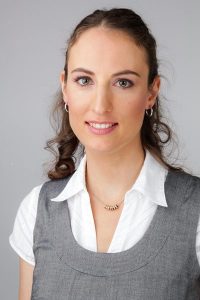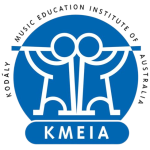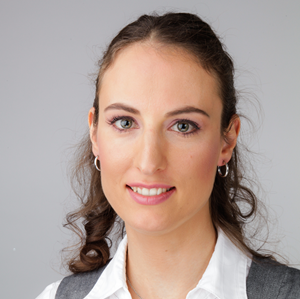 Ebony Birch-Hanger (B EC – Hons; M SpEd – Deaf/HH) is a Special Education Teacher, Neurodevelopmental Therapist, Teacher of the Deaf, Kodaly-trained Music Educator, Education Consultant & Public Speaker. She was first exposed to the tools of Kodaly as a young chorister. After completing her Early Childhood degree and a brief tour of the European Kodaly, Dalcroze and Orff institutes, Ebony made these philosophies/approaches a focus of her education and therapy programs in her own organisation Personalised Approaches. Through further study in Special Education and Neurodevelopmental Therapy, Ebony continued to create innovative ways of combining movement and music (including sequential Kodaly learning) to enhance the development of neurodivergent infants through to seniors, with a variety of complex disabilities, learning difficulties, varied communication methods, and medical conditions. Ebony is a well-known speaker in the education field, presenting at several state, national and international conferences, including IKS Malaysia (2019) and the National Kodaly Conference Perth (2018). Ebony has also worked as a choral conductor with Southern Voices, and as the Music Director of Joyful Strains and Spirit Sounds (adult community choirs). Ebony has completed her Australian Kodaly Certificate (Secondary).
Ebony Birch-Hanger (B EC – Hons; M SpEd – Deaf/HH) is a Special Education Teacher, Neurodevelopmental Therapist, Teacher of the Deaf, Kodaly-trained Music Educator, Education Consultant & Public Speaker. She was first exposed to the tools of Kodaly as a young chorister. After completing her Early Childhood degree and a brief tour of the European Kodaly, Dalcroze and Orff institutes, Ebony made these philosophies/approaches a focus of her education and therapy programs in her own organisation Personalised Approaches. Through further study in Special Education and Neurodevelopmental Therapy, Ebony continued to create innovative ways of combining movement and music (including sequential Kodaly learning) to enhance the development of neurodivergent infants through to seniors, with a variety of complex disabilities, learning difficulties, varied communication methods, and medical conditions. Ebony is a well-known speaker in the education field, presenting at several state, national and international conferences, including IKS Malaysia (2019) and the National Kodaly Conference Perth (2018). Ebony has also worked as a choral conductor with Southern Voices, and as the Music Director of Joyful Strains and Spirit Sounds (adult community choirs). Ebony has completed her Australian Kodaly Certificate (Secondary).
Day 3: Wednesday
| Time | Title |
|---|---|
| Session 5: 14.00 | Movement Activities to Engage the Brain and Highlight the Impact of Neurodiversity in Kodály-based Learning |
| Have you ever wondered what you’re really assessing in the music classroom?…hint: it’s not just musical ability!
This workshop will engage you in several practical, fun (and challenging 🙂 ) brain-based, movement activities to use with secondary students or adults. These activities are great to include in your methodological sequences as they highlight specific melodic, rhythmic and musical elements, while also enhancing neurological pathways. They can, of course, just be used as stand-alone activities for fun! Each activity will demonstrate that the way individuals’ brains are wired can greatly affect how they ‘perform’ and participate in the music classroom. We will briefly discuss these differences in ‘brain wiring’ in relation to classroom assessments. If you’re looking for new ways to engage your students/choirs, and have a few laughs, this session is for you |
|
Day 4: Thursday
| Time | Title |
|---|---|
| Session 4: 14.05 | Enhancing Language Skills Through Music |
| Music is one of the strongest tools we can use to develop language. This interactive workshop will provide you with lots of songs and activities that you can use to extend students’ vocabularies, develop an understanding of syllables and develop language structure. All activities are either suitable for, or can be adapted for, students who are neurodivergent or from ESL and low-socioeconomic backgrounds, including students who are non-speaking or use alternative/augmented forms of communication. There will also be opportunities within some of the activities to highlight rhythmic and melodic elements with your students. No student will be left out in your music classroom! | |

